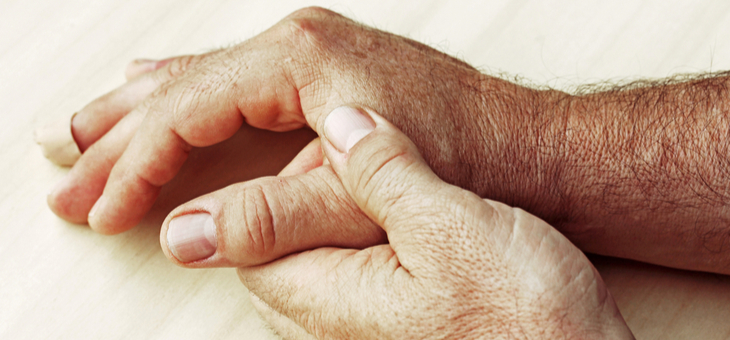The most common cause of shaky hands is essential tremor. Essential tremor is a neurological disorder, meaning it affects the nervous system and will likely worsen over time. It causes involuntary shaking in one or more parts of the body. It most commonly impacts the hands but also occurs in the arms, legs, head, torso and vocal cords. Shakes are often rhythmic but can occur either intermittently or constantly.
Essential tremor occurs most commonly in people over the age of 40. It is often confused with Parkinson’s disease, and the shaking is likely to worsen rather than ease with muscle use.
While not life threatening, some everyday tasks such as eating, shaving, writing, holding a glass or speaking may become difficult or impossible.
Symptoms include shaking that often begins in the hands – involuntary motions or gestures that may worsen with movement, fatigue, caffeine or stress.
Essential tremor is the most common neurological disorder affecting adults. Approximately half the cases of essential tremor are caused by a genetic mutation known as familial tremor. If you have a parent with the genetic mutation for tremors, there is a 50 per cent chance you will develop the disorder. Non-genetic causes for essential tremor are poorly understood, but are often attributed to abnormal functioning of the cerebellum, the part of the brain that regulates motor movement.
While tremor may occur on its own, it can also be a symptom of another neurological disorder. These include multiple sclerosis, stroke, overactive thyroid, traumatic brain injury or anxiety.
Propranolol and long-acting propranolol are beta-blockers, commonly used to treat hypertension and arrythmia. Primidone, an anti-seizure medication may also be used in treatment. If you experience shaky hands, consult your doctor.
If you enjoy our content, don’t keep it to yourself. Share our free eNews with your friends and encourage them to sign up.
Related articles:
Health secrets your hands hold
What is ‘Parkinsonism’?
Parkinson’s: early warning signs
Disclaimer: This article contains general information about health issues and is not advice. For health advice, consult your medical practitioner.

